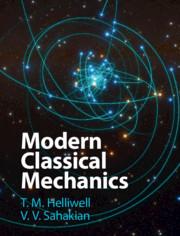An infinite rod has an initial Gaussian displacement function (eta(0, x)=) (A e^{-x^{2} / b^{2}}), where (A)
Question:
An infinite rod has an initial Gaussian displacement function \(\eta(0, x)=\) \(A e^{-x^{2} / b^{2}}\), where \(A\) and \(b\) are constants.
(a) Carry out a Fourier transform of \(\eta(0, x)\), and show that the result is a Gaussian function in \(k\) space.
(b) Then show that if the Gaussian in position space is narrow (with \(b\) small), then the Gaussian in \(k\) space is wide, and vice versa.
(c) Define \(\Delta x\) as the distance between the two points on the position-space Gaussian for which \(\eta(0, x)\) is half its maximum value. Similarly, define \(\Delta k\) as the distance in \(k\) space between the two points on \(g(0, k)\) for which \(g(0, k)\) is half its maximum value. Then find the product \(\Delta x \cdot \Delta k\), and show that it is independent of \(b\). Hint: The Fourier integrals can be evaluated by completing the square in the exponents.
Step by Step Answer:






